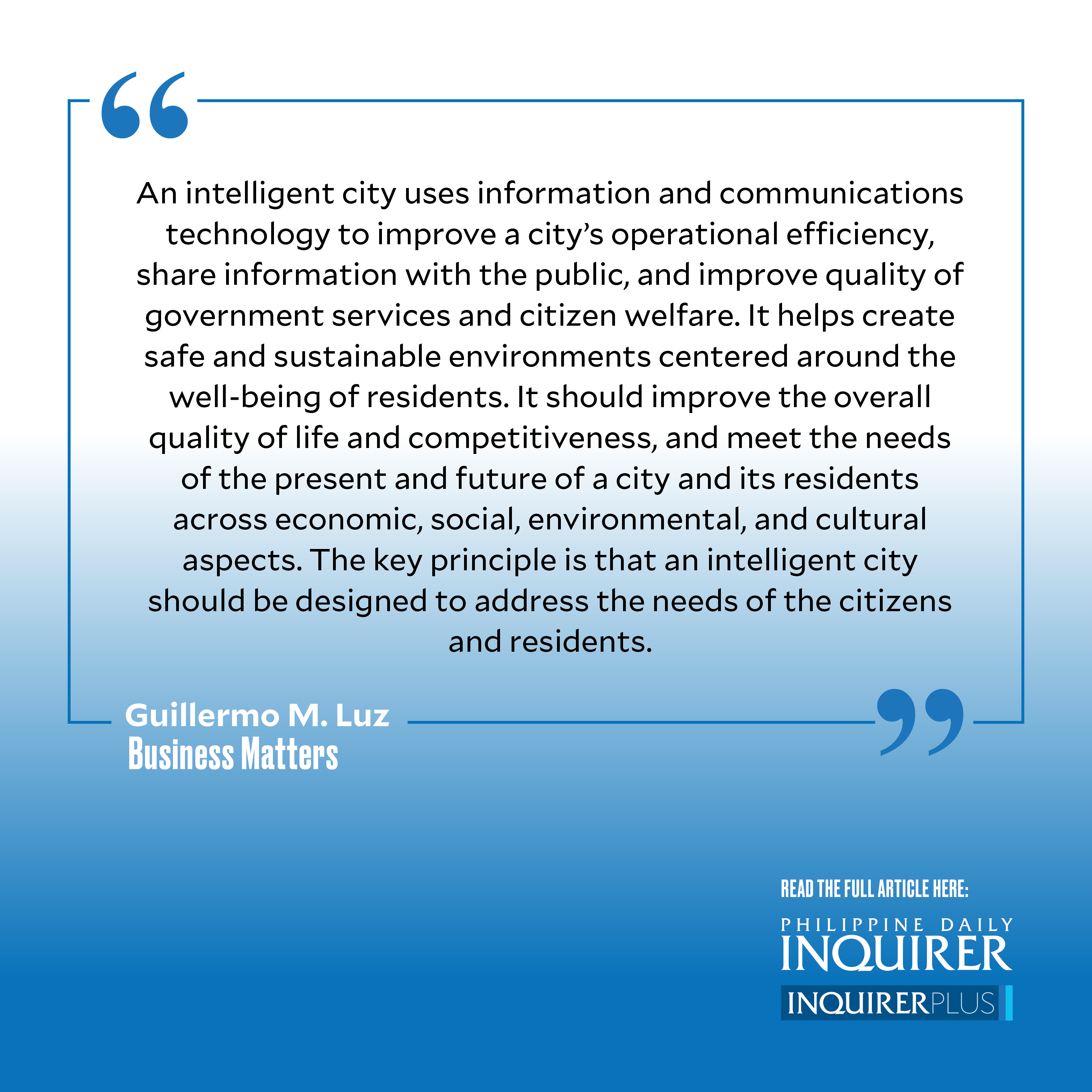The need for intelligent cities, municipalities
 Today, more than half of the world’s population live in cities. This proportion grew from just 30 percent in 1950 and is expected to reach around 66 percent by 2050. The same trend is true for the Philippines. Over half of our population lives in 1,634 cities and municipalities across the country, with a large proportion of them residing in 147 large cities.
Today, more than half of the world’s population live in cities. This proportion grew from just 30 percent in 1950 and is expected to reach around 66 percent by 2050. The same trend is true for the Philippines. Over half of our population lives in 1,634 cities and municipalities across the country, with a large proportion of them residing in 147 large cities.
Cities account for a disproportionate contribution of the positives and negatives of the national balance sheet. The positives include contribution to GDP and productivity. The negatives include poverty, pollution, and environmental problems, and traffic, as examples. For better or for worse, cities will remain at the center of economic, social, and environmental activities and problems.
Effectively addressing these problems will not be easy. But with the increase of digital technologies and innovation, citizens and leaders can now easily address these issues in their localities. Insights gained from data can be used to plan development, guide timely investments, and manage assets, resources, and services efficiently. Likewise, with this explosion in digital technologies, citizens will have more access to information and can assess and expect more from their leaders.
Article continues after this advertisementFor many cities, this may be the right time to embark on the journey to create an “intelligent city.” The needs are clear, the technology is available, and the means to deliver better services are within reach of many cities and municipalities now.
An intelligent city uses information and communications technology to improve a city’s operational efficiency, share information with the public, and improve quality of government services and citizen welfare. It helps create safe and sustainable environments centered around the well-being of residents. It should improve the overall quality of life and competitiveness, and meet the needs of the present and future of a city and its residents across economic, social, environmental, and cultural aspects. The key principle is that an intelligent city should be designed to address the needs of the citizens and residents.
Each city is, of course, quite different from another and will need to design its own version of an intelligent city. For instance, cities will have different “pain points” and will have their respective major problems they want to address. For some, it may be traffic or law enforcement. For others, it may be public health or disaster risk reduction. Because cities have different needs, there won’t be a “one size fits all” solution out there. But there will be many ideas and examples that can be shared among cities.
Article continues after this advertisementThe concept of an intelligent city suggests that a lot of technology is required. Technology is not always the answer, but some technology will certainly be needed. The key is to design a solution around a clearly identified problem or issue, and then use technology to address it. There are many tools available such as mapping software, dashboards, cameras, and sensors already available, so cities should not have too much of a problem in procuring something. If anything, the challenge will be in picking the right things to use. Fortunately, cities can build intelligence modularly as opposed to installing a large, unwieldy project immediately.
Our Liveable Cities program this year will focus on helping build intelligent cities. We will do this through our regular Liveable Cities Labs, as well as Local Labs, which will take a deeper look at selected cities. We will also relaunch our Liveable Cities Challenge—a design competition to address urban challenges in mobility, resilience, ease of doing business, and public health—and close out the year with our Liveable Cities Summit.
If you’re interested in helping build more liveable cities which are competitive, sustainable, and resilient, please join us. I’m sure ordinary citizens will have many good ideas to contribute to make our cities more liveable.
—————–
Guillermo M. Luz is chair of Liveable Cities Philippines and chief resilience officer of the Philippine Disaster Resilience Foundation.
—————–
Business Matters is a project of the Makati Business Club (makatibusinessclub@mbc.com.ph).
















